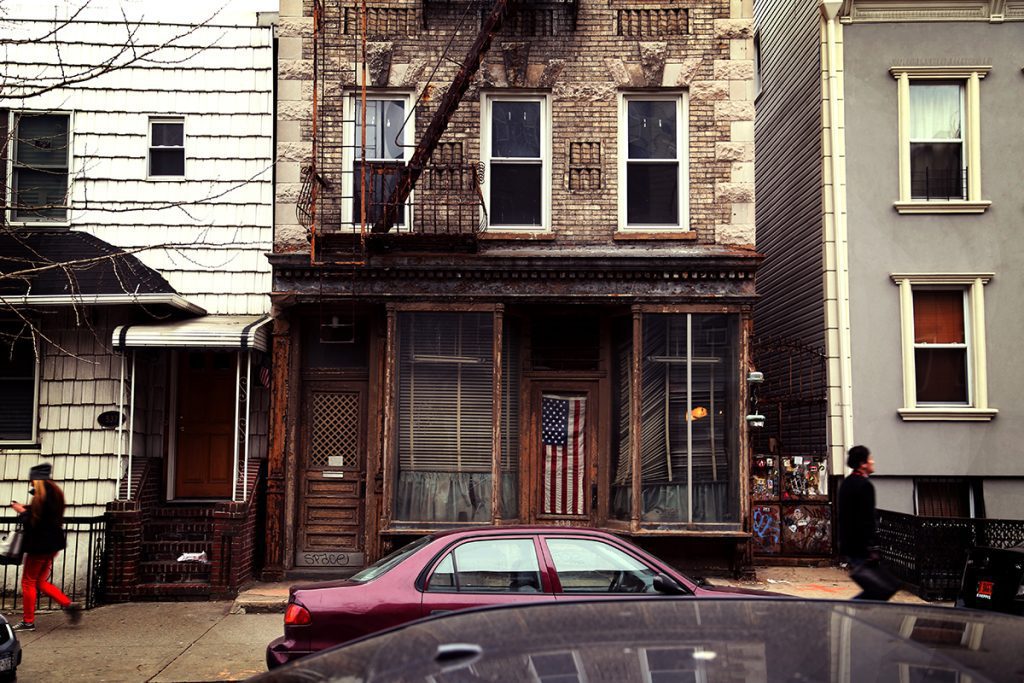In 2020, research revealed that 37.2 million people in the United States experienced poverty (US Census Bureau, 2022). In addition, more than 1 in 5 (22%) children living below the federal poverty level had a mental, behavioral, or developmental disorder (Data and Statistics on Children’s Mental Health | CDC, 2022b). Keep in mind that this percentage is only the reported figure. As a result, the number of individuals experiencing poverty and mental health symptoms is likely much higher.
The same is true of Virginia, where 1.1 million adults have a mental health condition. According to NAMI Virginia, 382,000 adults in Virginia do not receive needed mental health care, 47.1% of whom cannot afford the cost of care.
This article will discuss poverty, the link between poverty and mental health, and the physical and psychological effects. We will also share some resources that are available for people experiencing poverty in Northern Virginia and the Richmond and Tidewater areas.
What is poverty?
This simple, 7-letter word refers to an unbearable situation that 37.2 million individuals are experiencing in the United States. Per Britannica, poverty is the state of one lacking a usual or socially acceptable amount of money or material possessions (The Editors of Encyclopedia Britannica, 1998).
In 2021, the poverty threshold was $33,148 (US Census Bureau, 2022b). I was interested in learning how the threshold is calculated. The United States Census Bureau is a great resource.
Now that we have examined poverty, let’s examine the link between poverty and mental health.
Is there a link between poverty and mental health?
A study documented in the National Library of Medicine explored the correlation between poverty and mental health. It was found that individuals in the most deprived areas reported higher levels of mental illness and lower well-being (National Library of Medicine, 2013) (Science Direct, 2013). Thus, demonstrating a strong link between poverty and mental health.
Furthermore, the study found that as children got older, they experienced more abnormal social, behavioral, and emotional difficulties. A cohort study, which examined 4-year-olds in the most deprived areas of Glasglow, found that teachers noted abnormal social, behavioral, and emotional difficulties in 7.3% of the children. In comparison, only 4.1% of children in the least deprived areas showed similar difficulties. As children got older, these values increased. At age 7, 14.7% of children in the most underprivileged areas were rated as having ‘abnormal’ difficulties, compared with 3.6% of children in the least deprived areas (National Library of Medicine, 2013) (Science Direct, 2013).
These difficulties are due to socioeconomic inequalities, including limited access to economic, social, and political resources (National Library of Medicine, 2013) (Science Direct, 2013).
What are the Physical and Psychological Effects of Poverty? The Relationship Between Poverty and Mental Health
There is a wide range of psychological and physical effects that poverty can produce. These include:
- Exposure to environmental stressors such as pollution, temperature extremes, and challenging sleep environments.
- A lack of proper nutrition in utero and during childhood can impair cognitive development, causing mental illness.
- Worse physical health: more significant exposure to trauma, violence, and crime that may affect mental health.
- A lower social status, which in turn affects mental health.
Mental Health Resources for Low-Income Individuals
If you, a family member, or a friend are experiencing a mental health problem, please look below for local, statewide, and nationally-recognized resources. Sometimes a little help is all we need. These resources should provide a sense of relief and guidance through your journey.
- rtor.org www.rtor.org is a website that provides individuals and families with free support and help accessing mental health resources nationwide. Individuals can contact Resource Specialists by phone or email or consult the Directory of Family-Endorsed Providers, a list of vetted programs and providers.
- Local Organizations Local agencies also assist individuals experiencing poverty and mental health concerns. In Virginia, the following organizations provide mental health resources for low-income individuals.
Northern Virginia- Center for Psychological Services (George Mason University) – 703-993-1370
Provides a sliding fee scale, psychoeducational testing, mental health evaluations, and therapy for individuals, families, couples, and group therapy. - Haven of Northern Virginia – 703-941-7000
Provides grief support groups, workshops, and classes ranging from Open Suicide Loss Support Groups to Widow/Widower/Partner Support Groups. Also offers educational services and reading material. - Northern Virginia Family Services – 571-748-2500
Provides individual, couples, and family counseling. They serve their community by having a 90-bed homeless shelter in Manassas, Virginia. Furthermore, they link individuals to different health services, such as free eyeglasses, low-cost prescription medication (offered by more than 300 pharmaceutical companies), or dental examinations and treatments.
Tidewater Virginia
- Oasis Social Ministry – 757-397-6060
For individuals experiencing homelessness and food insecurity, they offer a daily community soup kitchen, which is available for breakfast and lunch. Additionally, they have a food pantry, a thrifty boutique, and hygiene kits. - Link of Hampton Roads – 757-595-1953
This organization provides an onsite food pantry and resources for drug, alcohol, and therapy. They provide resources for suicide prevention, child abuse, spousal abuse, and therapy. - Hampton Community Health Center – 757-393-6363
This nonprofit offers healthcare services for the underprivileged population. It ranges from Mental Health Services to Dental and Pediatrics. They accept Medicaid and Medicare and find funding for individuals and families who cannot pay.
Richmond Virginia
- Richmond Behavioral Authority – 804-819-4100
To qualify for Mental Health Services at this organization, an individual must be a resident of the City of Richmond and diagnosed with a mental illness. They offer case management, psychiatric evaluation and treatment, and primary medical care. Additionally, they have Rapid Access, which provides same-day admission for individuals seeking mental health or substance abuse treatment. - Daily Planet Health Services – 804-783-2505
This nonprofit organization serves the underprivileged. The Daily Planet provides mental health counseling, substance abuse counseling, psychiatric medication management, and evaluation. Additionally, they provide in-person dental services and have a teledentistry option. They accept Medicaid and Medicare, and find funding for individuals and families who cannot pay. - Caritas – 804-358-0964
Caritas has a program for individuals suffering from substance abuse called the Healing Place. It is a long-term peer-driven residential recovery program in Richmond, Virginia. This organization found that drug overdose rose during the COVID-19 Pandemic. This influenced and strengthened their decision to provide this service. Caritas also provides gently-used furniture, and each year they provide between 600 and 800 people with furniture. Additionally, this nonprofit provides three meals daily to women and men in Richmond, Virginia.
- Center for Psychological Services (George Mason University) – 703-993-1370
- Other Online Poverty and Mental Health Resources
Three nationally known and established mental health organizations are National Alliance on Mental Illness (NAMI), Substance Abuse and Mental Health Administration (SAMHSA), and Catholic Charities USA. NAMI believes that all people affected by mental illness should be able to live healthy and fulfilling lives supported by a caring community. They offer various resources, including Support Groups, NAMI Helpline, Mental Health Education, and Online Discussion. Many support groups are also available for individuals diagnosed with mental illness. NAMI Basics is a 6-session education program for parents, caregivers, and other families supporting youth experiencing mental health symptoms.The Substance Abuse and Mental Health Administration is an organization within the US Department of Health and Human Services. This agency leads public health efforts to advance the nation’s behavioral health. They provide Behavioral Health Treatment Service Locator and Services, a 988 Suicide and Crisis Hotline.The last organization is Catholic Charities. This faith-based organization provides individuals, couples, and family counseling. Also, they provide short- and long-term shelters, permanent shelter, food banks, pantries, and their community farms have helped millions of people. They help individuals become self-sufficient by providing basic computer classes, financial education, and small business training.
About the Author: Shakirra Pinnock is the Marketing and Communications Director for a mental health agency called James Bentley Treatment Program, located in Richmond, Northern Virginia, and Portsmouth, Virginia. James Bentley Treatment Program has provided mental health services to Virginia’s children, adults, and families for over 20 years. Shakirra researches topics surrounding mental illnesses in children, adults, and families and provides resources on the company’s mental health blog.
Photo by Christie Kim on Unsplash
The opinions and views expressed in any guest blog post do not necessarily reflect those of www.rtor.org or its sponsor, Laurel House, Inc. The author and www.rtor.org have no affiliations with any products or services mentioned in the article or linked to therein. Guest Authors may have affiliations to products mentioned or linked to in their author bios.
Resource List Websites
Northern Virginia
- Center for Psychological Services ( George Mason University): Center for Psychological Services (gmu.edu)
- Haven of Northern Virginia: Haven of Northern Virginia Grief Support (havenofnova.org)
- Northern Virginia Family Services: Northern Virginia Family Service – Nonprofit Organization (nvfs.org)
Tidewater Virginia
- Oasis Social Ministry: https://oasissocialministry.org/
- Link of Hampton Roads: https://oasissocialministry.org/
- Hampton Roads Community Health Center: https://www.hrchc.org/
Richmond Virginia
- Richmond Behavioral Health Authority: https://www.rbha.org
- Daily Plant Health and Services: https://dailyplanetva.org
- Caritas: https://dailyplanetva.org
References
- US Census Bureau. (2022, January 21). National Poverty in America Awareness Month: January 2022. Census.gov.https://www.census.gov/newsroom/stories/poverty-awareness-month.html
- Data and Statistics on Children’s Mental Health| CDC. (2002b, June 2002). Center for Disease Control and Prevention. https://www.cdc.gov/childrensmentalhealth/data.html#:~:text=Among%20children%20living%20below%20100,%2C%20behavioral%2C%20or%20developmental%20disorder.
- The Editors of Encyclopedia Britannica. (1998, July 20). Poverty| Definition, Causes, Types, and Facts. Encyclopedia Britannica. https://www.britannica.com/topic/poverty
- US Census Bureau. (2022b, September 22). How the Census Bureau Measures Poverty. Census.gov. https://www.census.gov/topics/income-poverty/poverty/guidance/poverty-measures.html
- National Library of Medicine. (2010, February). Health disparities across the lifespan: meanings, methods, and mechanisms. https://pubmed.ncbi.nlm.nih.gov/20201865/
- Science Direct (2013). What (or who) causes health inequalities: Theories, evidence, and implications? Health Policy, 113(3), 221–227. https://doi.org/10.1016/j.healthpol.2013.05.021





